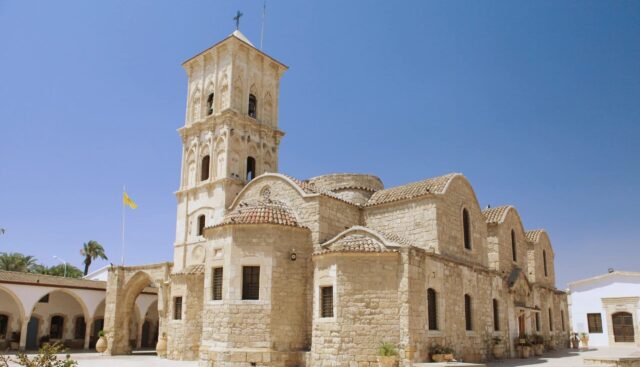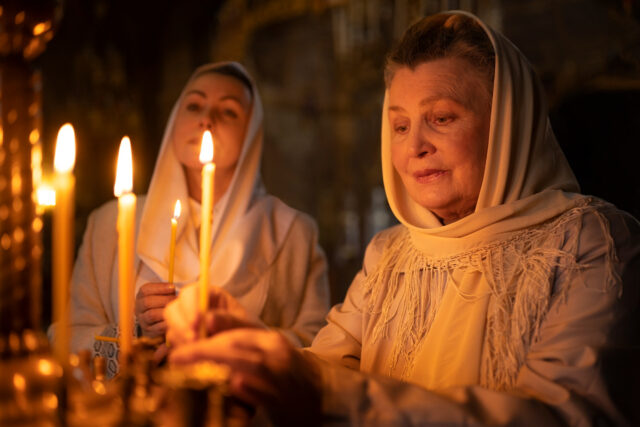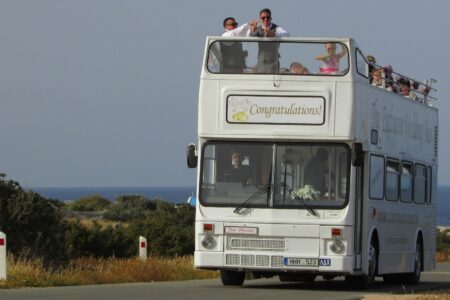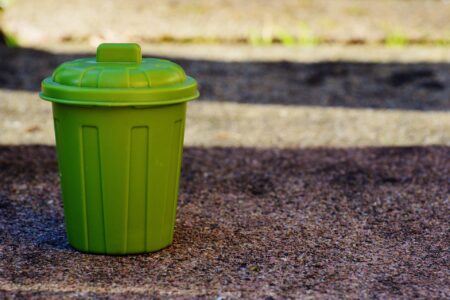Lazarus Saturday is one of the most significant Orthodox holidays in Cyprus, preceding Holy Week and Easter. This day commemorates the miracle of the resurrection of Lazarus, described in the Gospel, and symbolizes the victory of life over death, the triumph of faith, and the beginning of spring renewal. For Cypriots, Lazarus Saturday is not just a religious event, but an important cultural and family holiday, uniting generations.
Contents
- 1 The biblical history of the holiday
- 2 The significance of the holiday for Cyprus
- 3 Church of Saint Lazarus in Larnaca
- 4 Folk traditions and customs
- 5 Church services and spiritual meaning
- 6 Lazarus Saturday in the villages of Cyprus
- 7 Connection with Palm Sunday and Easter
- 8 Symbolism of the holiday
- 9 Why is the holiday important for modern Cyprus?
The biblical history of the holiday
According to Christian tradition, Lazarus was a friend of Jesus Christ and lived in Bethany, near Jerusalem. When Lazarus died, Christ came to his tomb and resurrected him, saying, “Lazarus, come forth!” This miracle became one of the most striking evidences of divine power and a harbinger of Christ’s Resurrection.
In the Orthodox tradition, Lazarus Saturday is celebrated eight days before Easter. It concludes Great Lent and marks the transition from a time of repentance to the joy of the coming resurrection.
The significance of the holiday for Cyprus
In Cyprus, Lazarus Saturday has special significance because, according to tradition, after his resurrection, Lazarus went to the island and became the first bishop of the city of Kitium (now Larnaca). It was here, according to legend, that he lived for another 30 years, preaching Christianity. The Church of Saint Lazarus, where his relics are kept, still stands in Larnaca, attracting thousands of pilgrims from all over the world every year.

Thus, Lazarus Saturday for Cypriots is not just part of the church calendar, but a holiday directly linked to the history and spiritual identity of the island.
Church of Saint Lazarus in Larnaca
The main center of the celebration is the Church of Saint Lazarus (Agios Lazaros) in Larnaca, built in the 9th century by the Byzantine Emperor Leo VI. The church was erected on the site where Lazarus is believed to have been buried after his second death. His sarcophagus, discovered by archaeologists, has become one of the most sacred relics in the Orthodox world.
On the feast day, a solemn liturgy is celebrated in the church and a procession through the streets of Larnaca takes place. The icon of Saint Lazarus is carried out of the church and carried through the old town to the sound of church bells. Residents decorate their homes with flags and wreaths of greenery, and the streets are filled with the aroma of incense and flowers.

Folk traditions and customs
Lazarus Saturday in Cyprus combines religious rituals with folk traditions dating back to ancient times.
Children’s processions and chants
Early in the morning, children go from house to house in villages singing “Songs of Lazarus” (Ta Lazara) —short verses celebrating the miracle of the resurrection. In return, the hosts give them eggs, sweets, fruit, or coins. This custom has persisted for centuries and is considered a harbinger of Easter.
Decorating branches and yards
On the eve of the holiday, residents decorate their homes with green branches, flowers, and olive leaves—symbols of renewal and eternal life. In some regions of Cyprus, small crosses are made from olive branches, which are blessed in church and kept in homes throughout the year.
Traditional baked goods
On Lazarus Saturday, housewives bake a special bread called “lazarki” (λαζαράκια) —human-shaped figurines symbolizing Lazarus wrapped in burial shrouds. The pastry is decorated with cloves, raisins, and sesame seeds. It is believed that baking lazarki on this day will bring prosperity and health to the home.

Helping those in need
Traditionally, on Lazarus Saturday, Cypriots devote their time to charity. Churches collect donations for the poor, and families donate food and bread to neighbors.
Church services and spiritual meaning
Lazarus Saturday marks spiritual rebirth. At the morning liturgy, priests read the Gospel of John, which recounts the miracle of the resurrection, and perform the blessing of water and bread. Believers bring branches, candles, and flowers to the church, which they then bless and take home.
The prayers of this day are filled with joy and light. After long weeks of fasting, the word “resurrection” is once again heard in churches, heralding Easter. Many Cypriots try to receive Holy Communion on this day, considering it spiritually cleansing.

Lazarus Saturday in the villages of Cyprus
In small towns, the holiday is accompanied by special rituals. Some mountain villages host festive markets selling baked goods, honey, flowers, and olive oil. People gather in squares to sing folk songs and share homemade dishes with their neighbors.
In the village of Lefkara and its surroundings, women hold competitions for the most beautiful baked lazarki, and in the Troodos region, children make flower wreaths and decorate churchyards with them.
In the evening, families gather around the table: fish, vegetable dishes, and grape wine are served, as Lazarus Saturday ends the strict Great Lent.
Connection with Palm Sunday and Easter
The Feast of Lazarus is directly linked to Palm Sunday, which falls the following day. These two days are considered preparation for Holy Week, when Christians commemorate the final days of Christ’s earthly life.
Lazarus Saturday symbolizes hope and faith in eternal life, and Palm Sunday symbolizes the triumph of the Kingdom of Heaven. In Cyprus, these days form a single spiritual cycle, rich in rituals, hymns, and family traditions.
Symbolism of the holiday
For Cypriots, Lazarus Saturday is a celebration of hope and spring. Its symbols include:
- The olive branch is a sign of peace and blessing.
- Lazarki bread is a symbol of resurrection and abundance.
- Flowers and greenery are a sign of renewal of nature and faith.
- Children’s songs are the embodiment of joy and purity.
This day reminds us that life, faith and goodness can overcome fear and darkness.

Why is the holiday important for modern Cyprus?
Lazarus Saturday unites the island’s spiritual and cultural heritage. It intertwines religion, history, and folklore. For modern Cypriots, it is an opportunity to connect with their roots, preserve family traditions, and pass on to their children a respect for faith and culture.
Every year, pilgrims from all over the island come to the Church of Saint Lazarus in Larnaca to experience the ancient shrine and become part of a living tradition that Cyprus has preserved for over a thousand years.
Lazarus Saturday in Cyprus is a celebration of spiritual renewal, joy, and hope. It unites people around faith, family, and national traditions. Through hymns, the aroma of bread, and the blossoming of spring trees, Cyprus celebrates Easter, preserving ancient customs and a sense of unity passed down from generation to generation.
















